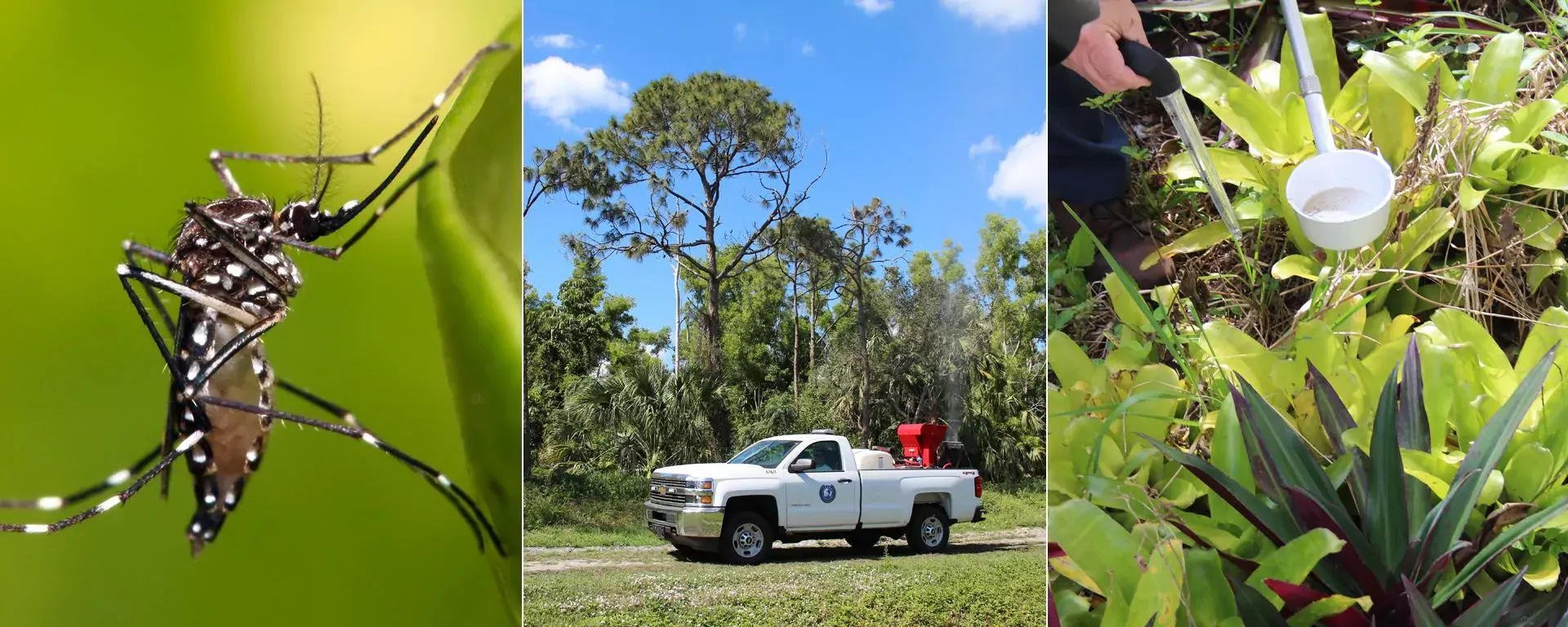MOSQUITO 101
There are over 3,000 different types of mosquitoes. In Florida we have 90 + different species with this number increasing due to invasives.
- Aedes aegypti (Yellow Fever Mosquito): container breeder, dengue/zika/chikungunya/yellow fever
- Aedes albopictus (Asian Tiger Mosquito): container breeder, dengue/zika/chikungunya/yellow fever
- Aedes taeniorhynchus (Salt Marsh Mosquito): salt marsh, heartworm/Eastern Equine Encephalitis
- Anopheles crucians Complex: standing water/swamps, Malaria
- Culex nigripalpus (Florida SLE Mosquito): standing water/floodwater, West Nile virus/St Louis encephalitis
- Culex quinquefasciatus(Southern House Mosquito): standing/dirty water, WNV/SLE
- Coquillettidia perturbans (Cattail Mosquito): aquatic plant roots (mainly cattails), WNV/EEE/heartworm
- Mansonia sp.: aquatic plant roots (mainly water lettuce/hyacinth), Heartworm
- Psorophora sp.: Floodwater, heartworm/Venezuelan Equine Encephalitis
Diseases Mosquitoes Vector in Florida:
- Dengue
- Chikungunya
- Yellow Fever
- Zika
- West Nile Virus (WNV): Vaccinate your horses! Talk to your vet
- Eastern Equine Encephalitis (EEE): Vaccinate your horses! Talk to your vet
- St Louis Encephalitis (SLE)
- Heartworm (Dirofilaria immitis): Preventatives for your dogs and cats. Talk to your vet. Heartworm Society. FDA
No, only female mosquitoes bite. Females need blood to make eggs. Male mosquitoes feed on plant sugar. Only some species of mosquito like to bite people.
Immature mosquitoes live and develop in standing water. The location depends upon the species. There are mosquitoes that breed in salt marshes, swamps, crab holes, ponds, swales, bromeliads and even small containers like buckets. As adults, mosquitoes prefer nice shady places around vegetation. Chances are, if mosquitoes are bothering you at home, they are liking breeding someplace nearby.
Mosquito control works closely with the Department of Health to monitor the mosquito population and prevalence of mosquito-borne disease. When mosquito populations are high or there is disease-activity within an area, we make sure to treat with both larvicides and adulticides to eliminate mosquitoes.

